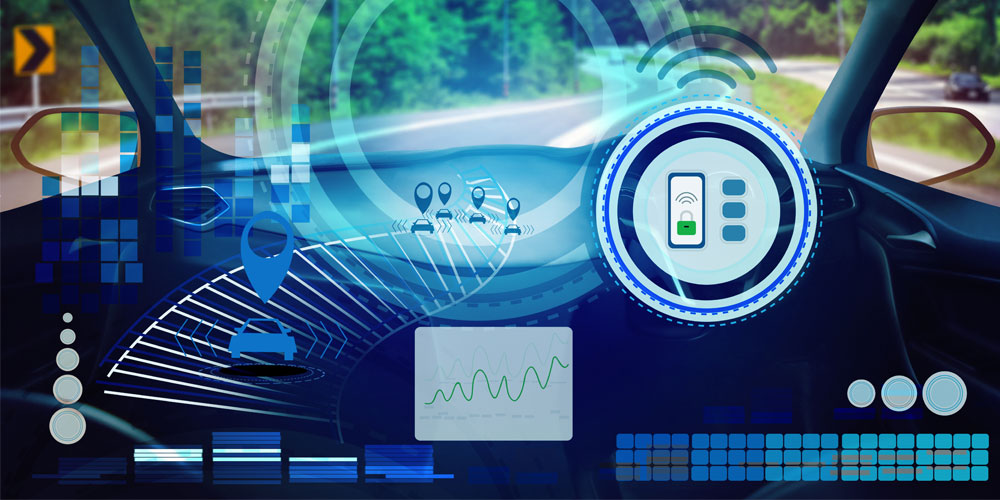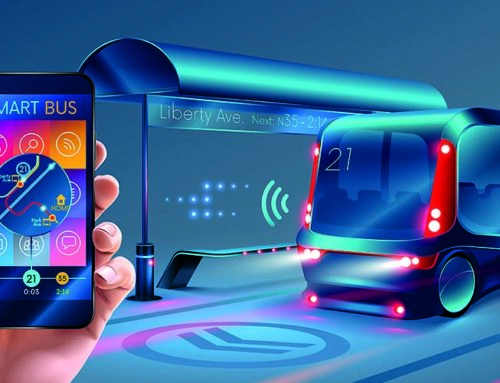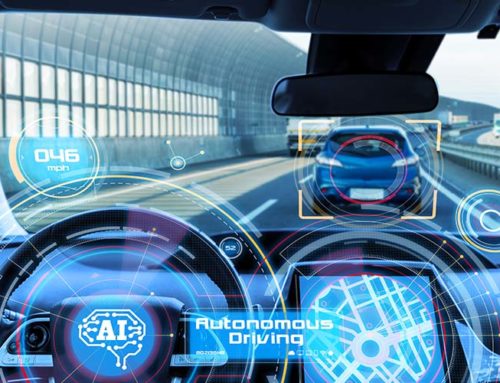You have a meeting in a neighboring city, and simply thinking about it stresses you out.
Aside from packing and preparing for the business trip, you also dread the long queues at the airport, possible flight delays, and going through a hundred and one security checks.
Imagine if you can do away with all that simply because there’s a better transportation alternative. What if you had a fully autonomous vehicle that would allow you to rest and relax on the way to your meeting?
The solution? Self-driving vehicles.
Welcome to the Future of Mobility
Self-driving vehicles may be the answer to a lot of mobility challenges that people face today. Aside from personal situations, there are industries that can greatly benefit from these self-driving modes of transport.
These days, a lot of cars already have driver assistance features that make life easier and more convenient for the driver. There are cruise control systems, lane departure warnings, blind spot information system, parking assist cameras and sensors, and many other features all designed to create a safer and more comfortable ride and drive. Soon, experts say, autonomous vehicles (AVs) will join the fray.
Automobile manufacturers, technologists, and governments have all been making an effort to look into autonomous driving technology as a solution to modern mobility issues. Policy makers and decision makers from around the world gather to discuss the possibilities and opportunities that driverless cars can bring. Forums, conferences, and other forms of automotive congress also serve as venues where people can see and appreciate the advantages of autonomous vehicles.
Free from human intervention, a fully autonomous car has various onboard technologies that allows it to govern itself on the road. Sensors from GPS, Lidar, radar, sonar, odometry, and inertial measurement units work together to allow the vehicle to perceive its surroundings. Along with advanced control systems that interpret sensory information, these vehicles can determine the right navigation paths as well as identify signs or road obstacles.
Who, then, can these driverless vehicles help? For a clearer picture, here are some industries that can reap exciting benefits once these autonomous cars finally roll in:
1. Transportation
The most obvious industry that will benefit is the transportation sector. Car manufacturers have started to shift their focus to developing autonomous vehicles to heed the call of the times. Others are also working towards more sustainable propulsion technologies to work hand in hand with semi or fully automated cars.
The transition to AVs, plus the development of electric or hybrid drivetrains, will all lead to a future where consumers will prefer mobility that is safer, more comfortable, and friendlier to the environment.
Ride-sharing companies will also reap benefits from the use of AVs. More and more people will prefer to hop into a ride-sharing vehicle and save themselves the trouble of driving, parking, or fuelling. Getting from point A to point B will be cheaper and more convenient, especially in cities.
Businesses who do deliveries will experience advantages as well. Leading fast-paced lives and juggling busy schedules, people in urbanized areas and metropolitan cities appreciate convenience and quick, high-quality service. Anything and everything they want can be possible with on-demand delivery services made more efficient by autonomous vehicles. From restaurants to retail, autonomous delivery services will save people from lining up and give them more time for other productive pursuits.
2. Media and Entertainment
Having your hands free from driving will also allow more time to enjoy other things, such as bingeing on the latest Netflix series or multitasking while watching a movie onboard an autonomous vehicle. Subscriptions may skyrocket with this newfound ability to spend leisure time on the road instead of juggling screen time and the act of traversing traffic.
Telecom and data companies will also have a field day, along with other infotainment app providers. People get stuck in traffic for hours. Getting a respite from the wheel while being able to watch or play would make getting stuck in traffic more bearable.
3. Science and Technology
Demand for professionals in the science and technology fields may also rise with the arrival of autonomous vehicles in the equation. IT experts, programmers, automotive technicians, and other professionals will have their hands full when manufacturing of these vehicles goes into full swing.
Industries that supply components, parts, and manpower to build and support these self-driving vehicles will also notice a greater demand for their products and services.
4. Hospitality and Real Estate
Travel will become more enticing since there’s no need to exhaust oneself to steer the car to the destination. Instead, time on the road can be spent socializing or resting.
Hotels, resorts, and spas will likely thrive since people are more inclined to travel. Cross-country road trips will be more popular, with people free from the stress of driving for long hours.
More parking spaces may be freed up with the introduction of AVs. These spaces may instead be converted into parks, recreational facilities, and other real estate structures.
Driving Towards Change
There is a slew of advantages when it comes to autonomous vehicles. People simply need to know more about these driverless cars so they can better appreciate the benefits they bring.
The upcoming Dubai World Congress for Self-Driving Transport will feature these self-driving vehicles and offer the perfect opportunity for everyone to learn more about future mobility alternatives. This event helps set the stage for a better understanding of the technology involved and how, ultimately, it can help people live richer, more meaningful lives. See you there!
Congress
A global 2-day conference that will raise public awareness of modern and future transport by identifying the impact of technology on investments and transport strategies.
Exhibition
A cutting-edge exhibition showcasing the future of self-driving vehicles. The Dubai World Congress for Self-Driving Transport Exhibition is the essential place to attain key decision makers’ attention, and to meet your target audience.
Challenge
The first-of-its kind, multi-year international challenge designed for industry leaders, start-ups, and academia tackling the transport challenges faced by global cities.





